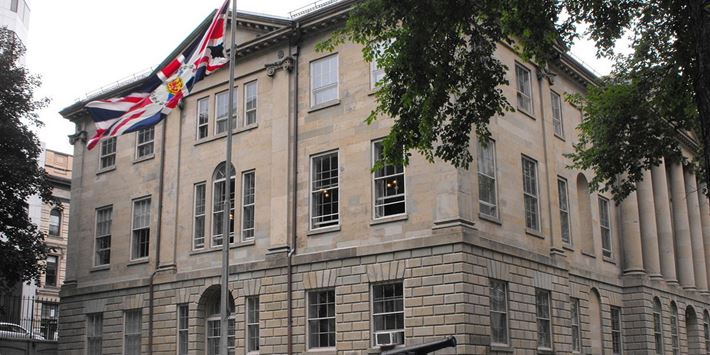By now, most of you are probably aware that Bill 85 has passed. By that same token, you may have also heard that I, along with the majority of my caucus colleagues, voted against this Bill.
You can find the full text of Bill 85 here:
https://nslegislature.ca/legc/bills/63rd_1st/1st_read/b085.htm
This Bill is an amendment to the Municipal Government Act (“MGA”) and it allows the Cape Breton Regional Municipality (“CBRM”), and only the CBRM, very broad ranging power. On its face, it appears that the intent of the Bill is simply to help the CBRM move its Port project along and address the CBRM’s high commercial tax rates.
I truly believe that these are both admirable objectives, and the CBRM does deserve that Charter that they have been pushing for. But keep in mind that one of the key messages that came out of the CBRM Charter consultations this past January, and reiterated at the Bill’s second reading last week by Minister Mombourquette, was not to rush the Charter. The message at the Consultations was not to rush because the draft Charter on the table (that included sales at less than fair market value and tax abatements) was far too broad, with minimal detail and maximum autonomy for the CBRM.
The CBRM deserves better than this poorly drafted Bill, which instead of dealing with the real issues only serves to pit community against community, and, depending on how abatements are awarded, could pit neighbour against neighbour.
This Bill could have far-reaching, unintended impacts. This is not the way Government should be addressing the very real economic development challenges that are faced by the entire province. These challenges are not limited to one region, we all see them. It’s why economic development is the responsibility of the provincial government, and why this divisive Bill is not the way to address the issue.
I voted against this Bill at third reading. It is clear that the Liberals were determined to force this Bill through. In order to have considered voting in favour of this Bill, I would have liked to seen it amended to address some common sense flaws inherent in the version that has now passed. At a minimum, they should have changed things like:
- As written, land sales for less than fair market valuable are available only to “eligible municipal properties” and tax abatements are available to “eligible industrial properties”; however, no definitions are established for either in the MGA, in the Regulations, or in any other applicable legislation. There has been much made of the fact that the purpose of Bill 85 was to enable the Port to go forward, or to assist in generating economic development, but in reading the language of this Bill it is ambiguous as to whom this legislation is applicable. How can we pass legislation without knowing what/who it is going to apply to? Before ever approving this Bill, these terms should have been clearly defined so that we had an accurate picture of what properties are applicable for these benefits.
- The Bill is overbroad. There are no limitations on the abatements. For example, there are no renewal requirements, therefore, as drafted it appears the CBRM would have the ability to extend blanket tax abatements that could exist in perpetuity. Furthermore, there are no requirements for establishing who is entitled to these benefits, which opens up the opportunity for abuse. If we are going to give benefits to some individuals and not others, we should try to get a return on that investment. The Bill should establish requirements that ensure that the community derives some benefit from these abatements; therefore, when applying for the abatement, the applicants should establish their intended use for the property (i.e. to assist in economic development and provide a greater benefit to the community as a whole, similar to our present requirement for non-profits seeking tax abatements. How can we allow one commercial property owner to receive tax abatements on their property, but decline a similar request from their neighbour? This is the likely scenario without proper criteria established to merit an abatement.
- The same criteria established for abatements should also be considered for property sales and leases at less than fair market value. It should always be made clear to taxpayers why resources are being given away at a discount with no accountability as to why. At the very least, we should require an appraisal so that Council can see the discrepancy between the value and the sale price in an effort to ensure a minimal gap between the market value and sale price.
With all that said, if properly written, I think this type of legislation could provide a benefit to the province as a whole.
What if we allowed commercial tax abatements for a one or two year term to encourage economic development, provided that businesses meet certain (strict) criteria? The same can be said of the land sales, if there is land that is not being used and could be the source of positive development, perhaps that’s something we should consider allowing, but maybe include provision whereby that land can’t be sold for less than 75 per cent or 50 per cent of its assessed value. Or set out a term that it is a lease-to-own situation wherein the purchaser cannot receive title until they meet certain criteria (for example, establishing “x” number of jobs), and once they meet that mark, title will be transferred to the new owner at the price approved by Council.
While we’re on the topic of municipal issues, let’s talk about the deal between the Province and the Municipalities. For the year ending March 31, the most recent numbers show that the Department of Municipal Affairs will have spent $287 million. In reviewing last week’s budget for the coming year, $213 million is slotted for Municipal Affairs. The most significant drop is the budget line item “Grants and Contributions.” This item drops from $272 million (actual) and the budget for this year is $197 million. This is a concern.
I am running to be leader of the Progressive Conservative Party of Nova Scotia and ultimately Premier of this Province to work with municipalities to address the real issues. We can work together to demand and find better solutions.
Tim Houston, MLA for Pictou East
Leadership Candidate for the Progressive Conservative Party of Nova Scotia






0
This post does not allow comments.- 1
arrow-eseek-eNo items to display